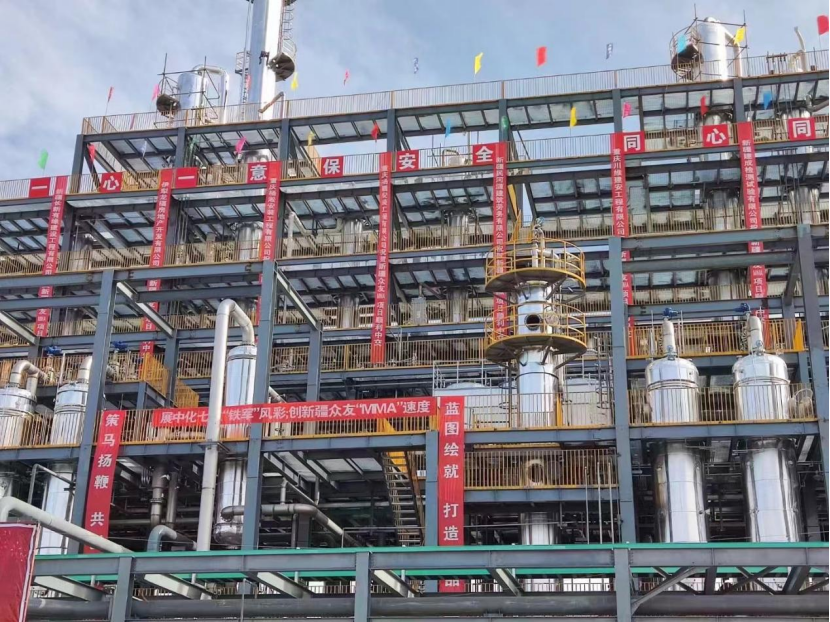Key Properties of Chloroprene Rubber: Benefits and Applications Explained
Chloroprene rubber, also known as polychloroprene, is a synthetic rubber that has gained recognition across various industries for its unique properties. This versatile material is derived from chloroprene monomers, and its distinctive characteristics make it suitable for applications demanding durability, thermal stability, and flexibility. In this article, we will examine the key properties of chloroprene rubber, detailing the benefits and applications that underscore its significance in modern manufacturing processes.
Are you interested in learning more about chloroprene rubber properties? Contact us today to secure an expert consultation!
One of the most noteworthy features of chloroprene rubber is its excellent resistance to environmental factors. It exhibits remarkable stability against ozone, UV radiation, and weathering, which ensures the longevity of products made from this material. This resistance to degradation makes chloroprene rubber an ideal choice for outdoor applications, such as sealants, roofing membranes, and automotive components, where exposure to harsh environmental conditions is a concern. Manufacturers benefit from reduced maintenance costs and extended product life when utilizing this rubber in their designs.
Another defining property of chloroprene rubber is its superior flexibility and stretchability. This rubber maintains its elasticity over a wide range of temperatures, making it suitable for applications that experience significant thermal fluctuations. Its ability to stretch without losing shape allows for easy manipulation and processing during production. In industries like textiles and footwear, chloroprene rubber is often used for elastic bands, gaskets, and seals, where elasticity is paramount. The combination of flexibility and durability facilitates enhanced performance in various applications, resulting in improved efficiency and lower operational costs.
Chloroprene rubber also demonstrates excellent resistance to various chemicals, including oils, acids, and alkalis. This property is particularly beneficial in automotive and industrial applications where exposure to harsh chemicals is common. Parts made from chloroprene rubber can withstand spills and leaks, reducing the risk of failure and increasing safety. Industries such as oil and gas, chemical processing, and food production often utilize chloroprene rubber for gaskets, seals, and hoses, knowing that the material will hold up against aggressive substances and reduce unplanned downtimes.
Recommended article:How Does Calcium Carbide Benefit PVC Production?
How Does Pigment Red 57:1 Affect Color Quality?
Unlocking Sorbitol Crystal 20/60 Wholesale: Benefits & Uses
What to Know About Moly Grease Wholesale?
Benefits of Styrene Acrylic Emulsion Wall Coatings
Top 7 Castor Oil Ethoxylate Manufacturers You Should Know
What Factors Influence the Purchase of Anatase TiO2 Pigment?
In addition to its resilience, chloroprene rubber showcases impressive adhesion properties. This characteristic makes it particularly valuable in the adhesive manufacturing industry. Chloroprene-based adhesives are renowned for their strong bond strength and versatility, which allows them to adhere to a variety of surfaces, including metal, wood, and plastics. This property is crucial in applications where reliable bonding is essential, such as in the automotive and construction sectors. The application of chloroprene rubber as an adhesive facilitates more robust assembly processes while minimizing the risk of product failures.
Furthermore, chloroprene rubber can be formulated to achieve specific hardness levels, allowing manufacturers to tailor its properties for diverse applications. By adjusting the formulation, producers can create products that exhibit varying degrees of hardness, from soft, flexible materials to rigid, robust options. This adaptability enables its use in a broad range of industries, from consumer goods to heavy machinery, where specific mechanical properties are required. Ultimately, the customizable nature of chloroprene rubber enhances its versatility and broadens its applicability across multiple sectors.
As industries continue to evolve, the demand for materials that combine performance with adaptability is increasing. Chloroprene rubber stands out as an essential material that meets these criteria, thus playing a crucial role in various applications. Its unique properties not only contribute to improved efficiency and flexibility in production processes but also ensure the reliability of the final products. For manufacturers looking to enhance performance while reducing costs, considering chloroprene rubber as a viable material option is a strategic step towards innovation and sustainability.
In conclusion, chloroprene rubber's distinctive properties, including environmental resistance, flexibility, chemical resistance, adhesion capabilities, and customizable hardness, make it a valuable asset in today's manufacturing landscape. As industries seek materials that can offer durability and adaptability, chloroprene rubber emerges as a reliable solution. Companies are encouraged to explore the potential applications of this innovative material to enhance their product offerings and stay competitive in their respective markets.
The company is the world’s best personal care thickener supplier supplier. We are your one-stop shop for all needs. Our staff are highly-specialized and will help you find the product you need.
Recommended article:10 Surprising Benefits of Using Sorbitol Powder in Your Diet
Essential Guide to Engine Lubricating Oil Benefits
Wholesale Amphoteric Surfactants: Quality & Sourcing Guide
Why Are Emergency Response Times Still So Unacceptably Slow?
Sucralose Bulk Supply vs. Other Sweeteners: What's Best?
Calcium Carbonate: Uses, Benefits, and Safety Guide
Maximize Performance with Industrial Lubricating Oils



